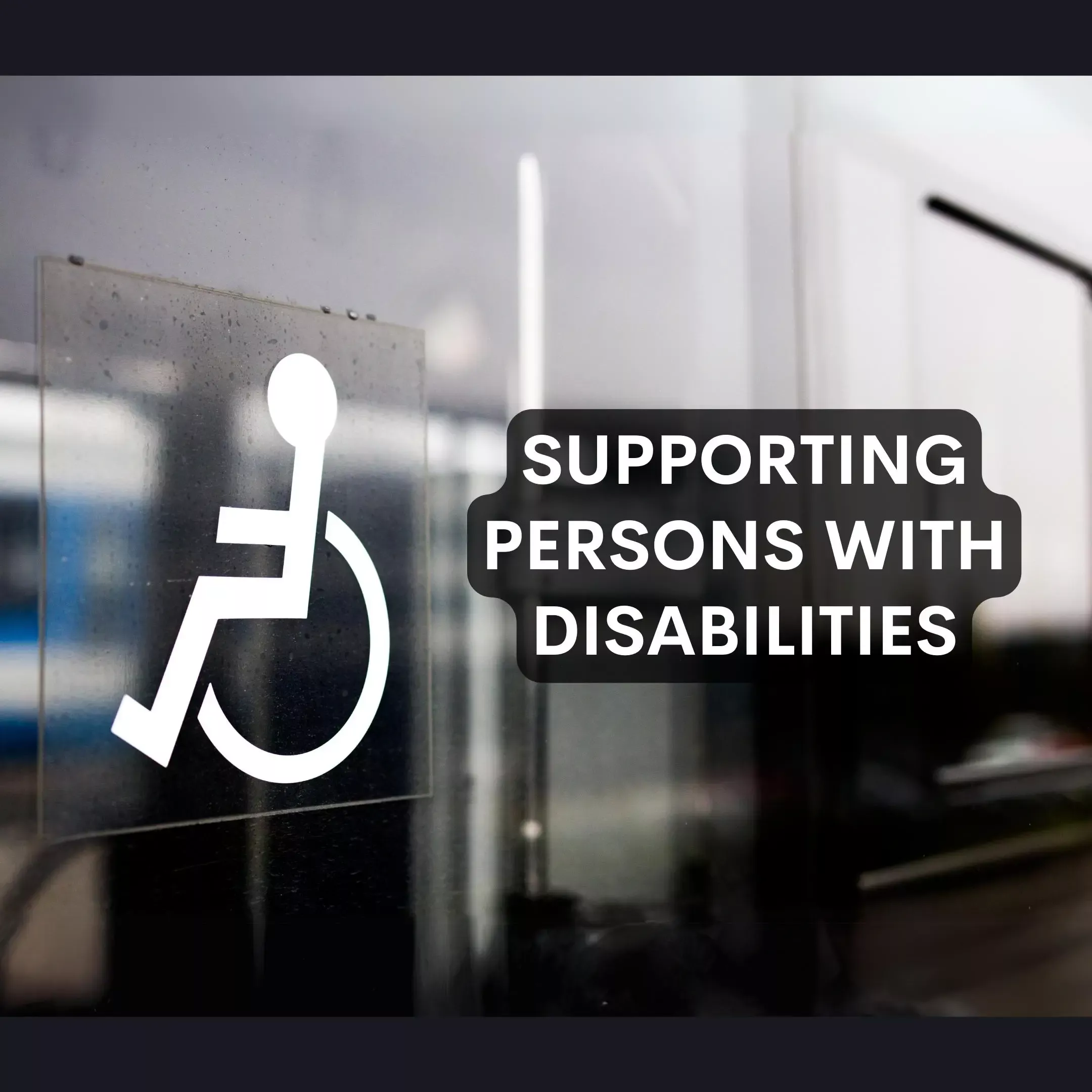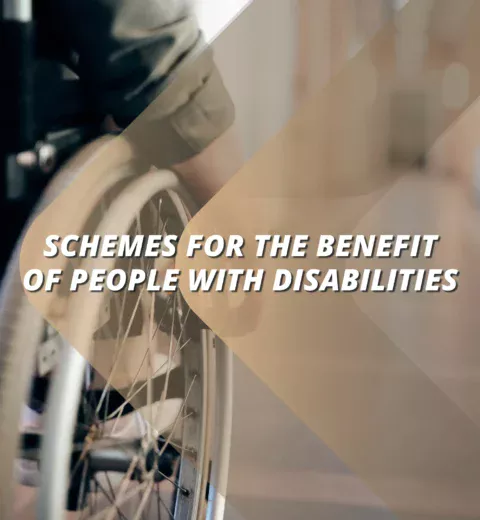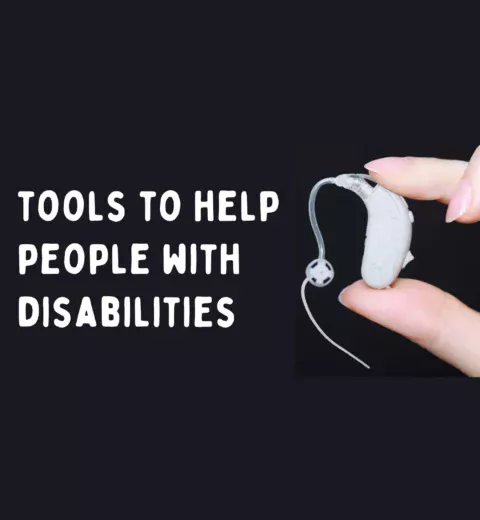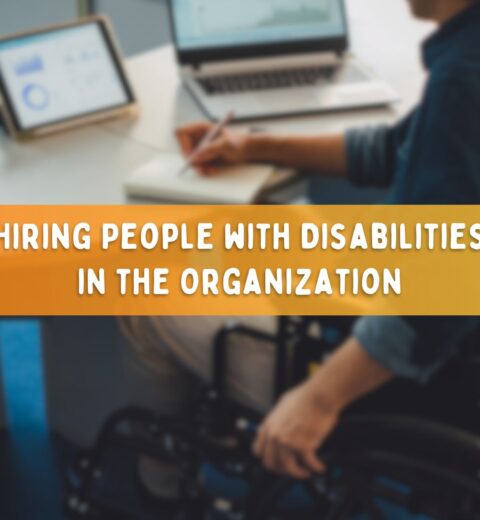Supporting people with disabilities in India is crucial for promoting inclusion, equality, and ensuring they can lead fulfilling lives. Support for individuals with disabilities is essential to foster inclusivity and ensure they have equal access to opportunities and a high quality of life. This support encompasses a wide range of measures, including accessible infrastructure, inclusive education and employment opportunities, awareness campaigns, and the promotion of assistive technology. By addressing the unique needs of people with disabilities and providing them with the tools, resources, and understanding necessary for their full participation in society, we can work towards a more equitable and diverse community where every individual is valued and empowered to reach their fullest potential.
Here are the top 10 ways to support individuals with disabilities in India:
1. Awareness and Education:
Awareness and education are vital pillars of support for individuals with disabilities. By raising awareness about the challenges and needs of people with disabilities, we can break down stigmas and misconceptions. This, in turn, fosters greater empathy and understanding in society. Additionally, educating communities and institutions about inclusive practices in education, employment, and daily life helps create a more accepting and accommodating environment, ensuring that individuals with disabilities can fully participate and contribute to their communities. Educate communities and schools about inclusive practices to create a more understanding and accepting society.
2. Accessible Infrastructure:
Advocate for and create accessible public spaces, buildings, and transportation to enable mobility and independence for individuals with disabilities. Accessible infrastructure is the cornerstone of support for individuals with disabilities. It involves designing public spaces, buildings, and transportation systems to accommodate the diverse needs of all citizens, including those with disabilities. This includes features like ramps, elevators, wider doorways, and tactile surfaces, ensuring mobility and independence for individuals with mobility impairments or sensory challenges. Accessible infrastructure plays a pivotal role in promoting inclusivity, enabling people with disabilities to navigate their surroundings with dignity and ease, and ensuring their full participation in all aspects of society.
3. Inclusive Education:
Ensure that schools and educational institutions provide inclusive education for children with disabilities, allowing them to learn and interact with their peers. Inclusive education is a fundamental pillar of support for individuals with disabilities. It involves providing an educational environment where students with diverse abilities and backgrounds can learn together in the same classrooms. This approach not only fosters a sense of belonging but also ensures that every child, regardless of their abilities, has equal access to quality education. Inclusive education goes beyond physical access; it emphasizes adapting teaching methods and resources to meet the unique learning needs of each student, promoting diversity and understanding among peers, and preparing individuals with disabilities for an inclusive and empowered future in our society.
4. Vocational Training:
Support vocational training programs to equip individuals with disabilities with skills that enable them to find employment and contribute to society. These programs equip people with disabilities with the necessary skills and knowledge to pursue gainful employment, enhancing their independence and self-sufficiency. Vocational training not only opens up new avenues for career opportunities but also breaks down societal barriers and misconceptions, proving that individuals with disabilities can contribute effectively to the workforce and society at large. It plays a pivotal role in promoting inclusion, economic self-sufficiency, and improving the overall quality of life for divyangjans in India.
5. Employment Opportunities:
Encourage businesses to provide equal job opportunities and reasonable accommodations for individuals with disabilities, promoting economic independence. By providing job opportunities that match their skills and capabilities, we empower people with disabilities to lead financially independent lives and contribute to the workforce. This not only enhances their self-esteem but also enriches the diversity of the labor market. It’s imperative for employers and society as a whole to recognize the potential and talents of individuals with disabilities, ensuring equal access to job opportunities and reasonable accommodations, thereby breaking down barriers and promoting a more inclusive and compassionate society.
6. Supportive Government Policies:
Advocate for and participate in campaigns for disability rights and better government policies and regulations to protect and promote the rights of people with disabilities. Supportive government policies are a cornerstone of empowering individuals with disabilities and ensuring their rights and needs are acknowledged. These policies encompass a range of initiatives, such as anti-discrimination laws, financial assistance, and accessible public services. They play a pivotal role in creating an environment where people with disabilities can thrive, access education, healthcare, and employment, and lead lives with dignity and independence. Moreover, such policies send a strong message that the government is committed to upholding the rights of individuals with disabilities, fostering a more inclusive and equitable society for all.
7. Assistive Technology:
Promote the use and availability of assistive devices and technology that enhance the independence and quality of life for individuals with disabilities. These technologies can be as simple as a screen reader for those with visual impairments or as complex as customized communication devices for non-verbal individuals. Assistive technology not only bridges the accessibility gap but also empowers people with disabilities to engage more fully in education, employment, and daily life. It plays a pivotal role in promoting inclusion and ensuring that everyone, regardless of their abilities, has the opportunity to thrive and reach their full potential.
8. Accessibility in Information:
Ensure that information, including websites, documents, and public announcements, is available in accessible formats like Braille, audio, and sign language. Accessibility in information is a fundamental aspect of supporting individuals with disabilities. It involves making information, whether on websites, documents, or public announcements, available in formats that are accessible to all, including those with sensory impairments. This means providing alternatives like Braille, audio, sign language, and text-to-speech options, ensuring that everyone can comprehend and interact with the content. Accessibility in information is a vital step towards inclusion, allowing individuals with disabilities to stay informed, engage with the world, and participate in society on an equal footing with others, regardless of their unique needs and abilities.
9. Support Networks
Encourage the formation of support networks and self-help groups for individuals with disabilities and their families to share experiences and resources. Support network groups are invaluable for individuals with disabilities and their families. These groups provide a safe space where people facing similar challenges can come together to share experiences, resources, and emotional support. Whether it’s a parent connecting with others who have children with disabilities or individuals with similar conditions sharing their journeys, these networks offer a sense of belonging and empowerment. They foster understanding, provide practical advice, and strengthen the sense of community, helping people navigate the complexities of life with disabilities and thrive in a world that can sometimes be less accommodating.
10. Empowerment and Advocacy:
Help individuals with disabilities develop self-advocacy skills and participate in decision-making processes that affect their lives and rights. Empowerment involves equipping individuals with the knowledge and skills to advocate for their own rights and needs. Advocacy, on the other hand, entails raising awareness about disability-related issues and pushing for policy changes to ensure inclusivity and equal opportunities. These two go hand in hand, with self-advocacy empowering individuals to actively participate in decisions that affect their lives and advocating for changes that benefit the broader disability community. Together, empowerment and advocacy play a vital role in promoting the rights and well-being of people with disabilities, fostering a more equitable and inclusive society.
It’s important to remember that supporting people with disabilities goes beyond providing physical assistance. Empathy, understanding, and a commitment to creating an inclusive and accessible society are crucial elements in making a positive impact in the lives of individuals with disabilities in India. In conclusion, supporting individuals with disabilities in India is not just a matter of goodwill; it’s a moral and societal imperative. The top 10 ways outlined above, ranging from awareness and education to accessible infrastructure and employment opportunities, form a comprehensive strategy to ensure that people with disabilities can lead fulfilling lives and actively participate in all aspects of society. By prioritizing these measures, we can work towards a more inclusive, empathetic, and equitable India, where everyone, regardless of their abilities, is valued, empowered, and provided with the opportunity to reach their full potential.




